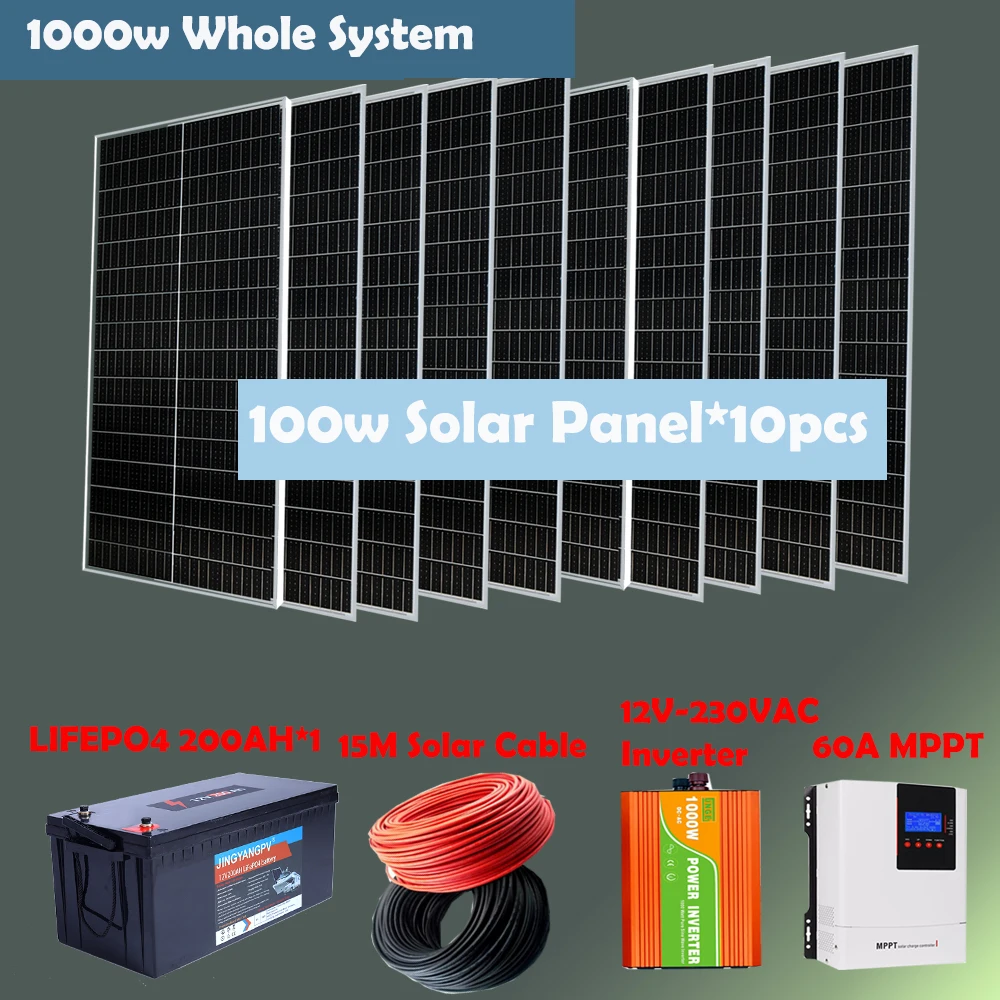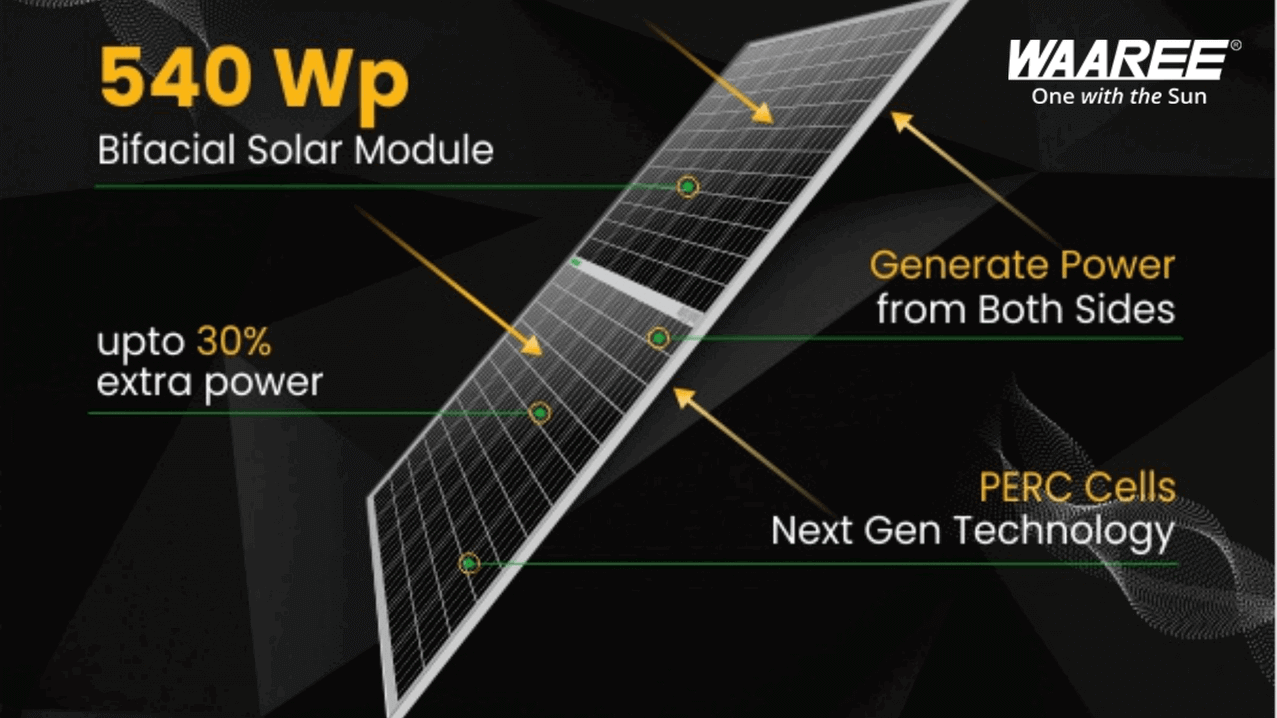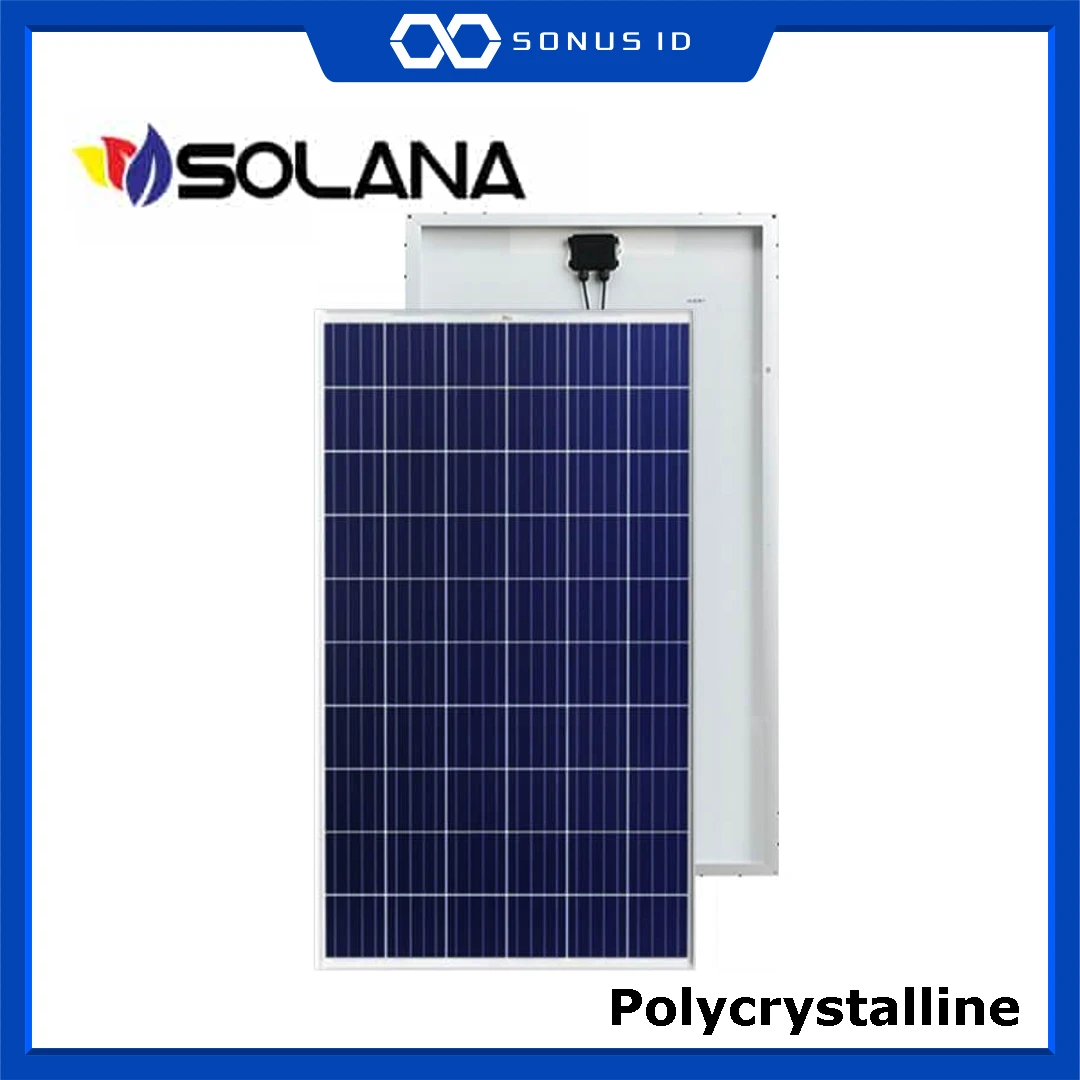Spectacular Tips About What Does 1000 Wp Solar Panel Mean

1000wsolarpanelkit150KWHMonth220VhomesolarpowerWithLithium
Unlocking the Power
1. Decoding the Solar Jargon
So, you're diving into the world of solar energy? Awesome! You've probably stumbled across terms like "1000 Wp solar panel" and thought, "Huh? What's all that about?" Don't worry, it's not as complicated as it sounds. Let's break it down in a way that makes sense, even if you're not a solar panel expert (yet!).
That "Wp" you see tacked onto "1000" stands for "Watt peak." Think of it as the maximum power a solar panel can produce under ideal conditions. Picture a sunny day, perfect temperature, and the panel is facing the sun at the perfect angle. In this dream scenario, a 1000 Wp solar panel should pump out 1000 watts of power. It's like saying your car can reach 150 mph — theoretically, in a lab, on a perfect track. Real life? A bit different, but still useful information.
Essentially, the Watt peak rating helps you compare different solar panels. A panel with a higher Wp rating is generally more powerful than one with a lower rating, assuming they're roughly the same size. It's a crucial metric when figuring out how many panels you need for your home, business, or off-grid adventure.
But here's the kicker: you'll rarely, if ever, see a 1000 Wp solar panel churning out that exact amount of power in real-world situations. Factors like shade, temperature, and the angle of the sun all play a role. Think of it as an upper limit, a potential that helps you make informed decisions. Like advertising a burger that never quite looks like the picture, solar panel wattage is more of an indication than a promise.

Why 1000 Wp Matters
2. Putting the Watts to Work
Okay, so we know what 1000 Wp means, but why should you care? Well, understanding the wattage of a solar panel is essential for several reasons, primarily when designing your solar system. If you want to power your entire house, knowing how many watts each panel can contribute helps you calculate the total number of panels you'll need. Its all about matching your energy needs with your solar power generation capacity.
Imagine you want to run an air conditioner that requires 1500 watts. A single 1000 Wp panel probably isn't going to cut it (especially considering real-world conditions). You'd likely need multiple panels, or a more powerful panel, to reliably power that AC unit. Calculating these things prevents you from ending up with a system that falls short of your expectations.
Larger solar installations, like those on commercial buildings or solar farms, often use high-wattage panels like 1000 Wp to maximize energy production while minimizing the number of panels and the physical space required. Less panels can mean lower installation costs, too.
Therefore, 1000 Wp is a useful benchmark. It represents a significant output, implying that the specific panel technology is at the cutting edge of power generation, which becomes a selling point and attracts tech-savvy consumers seeking efficient and high-performance solar solutions for their energy needs.

Waaree 540Wp Bifacial Solar Panel RTH Infra Private Limited
Factors Affecting Real-World Output
3. Beyond the "Ideal Conditions"
Remember that "ideal conditions" disclaimer we mentioned earlier? Yeah, that's important. Several factors can impact how much power your 1000 Wp solar panel actually produces in the real world. Lets address them.
First up: sunlight. Obvious, right? But it's not just about whether it's sunny or cloudy. The angle of the sun changes throughout the day and throughout the year. Solar panels perform best when the sunlight hits them directly, so the angle matters. That's why solar panel installation pros carefully consider the orientation of your roof and the placement of the panels to optimize sun exposure.
Temperature is another big one. Ironically, solar panels don't perform as well in extreme heat. As the temperature of the panel increases, its voltage decreases, which ultimately leads to a lower power output. This is why ventilation and cooling strategies are often incorporated into solar panel installations, especially in hot climates.
And let's not forget about shade! Even a small amount of shade can significantly reduce the power output of a solar panel. Trees, buildings, even overhead wires can cast shadows that dramatically decrease performance. Professional installers always conduct a shade analysis to identify and minimize potential shading issues.

Jual Paket Solar Panel ( Surya ) 1000 Watt Kota Bandung Inti
Beyond the Numbers
4. It's Not Just About the Watts
While the Watt peak rating is a useful metric, it's not the only thing that matters when choosing a solar panel. The overall quality and efficiency of the panel are equally important. Think of it like buying a car — horsepower is great, but you also care about fuel efficiency, reliability, and safety features.
Efficiency refers to how well a solar panel converts sunlight into electricity. A more efficient panel will produce more power from the same amount of sunlight compared to a less efficient panel. This means you might need fewer panels to achieve your desired energy output, saving you money and space.
The quality of the materials and construction also plays a significant role in the long-term performance and durability of a solar panel. High-quality panels are built to withstand the elements — wind, rain, snow, and extreme temperatures — for many years. Look for panels from reputable manufacturers with solid warranties.
So, when you are comparing different solar panels, don't just focus on the Wp rating. Consider the efficiency, quality, warranty, and overall reputation of the manufacturer. Research is key.

Solar Panel Solana Polycrystalline 250 WP SONUS
Making the Right Choice
5. Matching Your Needs to the Power
So, should you go for a 1000 Wp solar panel? The answer, as always, is "it depends." The best solar panel for you will depend on your specific energy needs, budget, and the available space. It all about sizing up your project.
Assess your energy consumption. Take a look at your past electricity bills to get an idea of how much energy you typically use each month. This will help you determine the size of the solar system you need to offset your energy usage.
Consider your available space. Do you have a large roof with plenty of sun exposure? Or are you limited by space or shading issues? The amount of space you have available will influence the size and configuration of your solar array. 1000 Wp panels tend to be physically larger, so they may not be suitable for all situations.
Think about your budget. Solar panels are a significant investment, so it's important to set a budget and stick to it. While higher-wattage panels may cost more upfront, they can potentially save you money in the long run by reducing the number of panels you need. And consider government incentives or rebates that may be available in your area to help offset the cost.
Finally, consult with a qualified solar installer. A professional can assess your specific needs and recommend the best solar panel system for your situation.

FAQ About 1000 Wp Solar Panels
6. Your Questions Answered
Still got questions? No problem! Here are some frequently asked questions about 1000 Wp solar panels:
Q: Will a 1000 Wp solar panel always produce 1000 watts?A: Nope! As we discussed, that's the peak output under ideal conditions. Real-world output will vary depending on factors like sunlight, temperature, and shade.
Q: Are 1000 Wp solar panels more expensive than lower-wattage panels?A: Generally, yes. But you also need fewer of them to achieve the same overall power output, which can potentially offset the higher per-panel cost.
Q: Are 1000 Wp panels suitable for residential use?A: Absolutely! They can be a great choice for homeowners looking to maximize energy production, especially if they have limited roof space. However, their larger size needs to be taken into account.
Q: How do I maintain a 1000 Wp solar panel?A: Typically, solar panels are relatively low-maintenance. Regular cleaning (removing dust, dirt, and debris) can help maximize their efficiency. A professional inspection every few years is also a good idea.
Q: What is the lifespan of a 1000 Wp solar panel?A: Most high-quality solar panels come with a warranty of around 25 years, and many panels will continue to produce power beyond that point, although at a slightly reduced output.